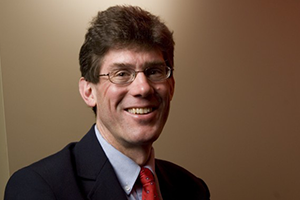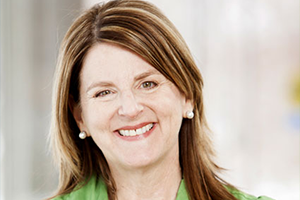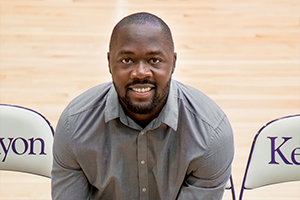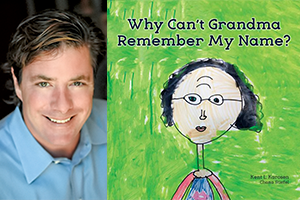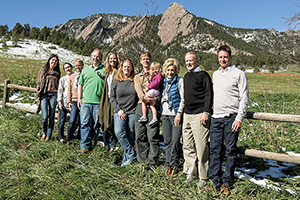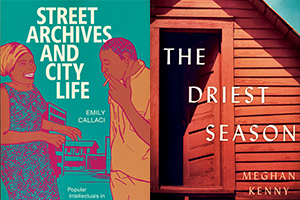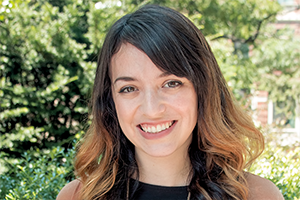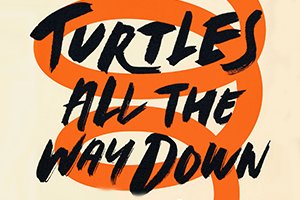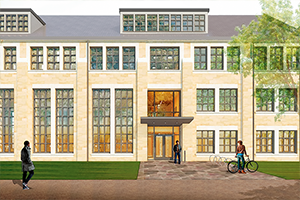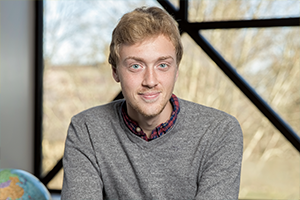Of Molecules and Metaphors
From doughnuts to e-cigarettes, Kenyon students use science to educate middle schoolers on addiction.
Read The StoryKent Karosen ’88 helps explain Alzheimer’s disease to children.
 How can a young child with a grandparent suffering from Alzheimer’s disease understand what is happening to their loved one? That’s the question Kent Karosen ’88 helps answer in his new children’s book, “Why Can’t Grandma Remember My Name?”
How can a young child with a grandparent suffering from Alzheimer’s disease understand what is happening to their loved one? That’s the question Kent Karosen ’88 helps answer in his new children’s book, “Why Can’t Grandma Remember My Name?”
As president and CEO of the Fisher Center for Alzheimer’s Research Foundation, which operates a leading research facility at The Rockefeller University in Manhattan and provides information and support to families affected by Alzheimer’s, Karosen is always looking for new ways to increase awareness about the neurodegenerative disease that affects more than 5 million Americans.
“I have seen younger children not be able to have a concept of what’s happening to their grandparents,” Karosen said. The book, which Karosen co-wrote with author Chana Stiefel, addresses questions children frequently ask (“Grandma sometimes gets angry ... what’s going on?”), and each question and answer is accompanied by artwork. Drawings done by kindergartners are juxtaposed with therapeutic art made by Alzheimer’s patients.
“Many of [the patients] cannot verbalize their feelings, or their position in life, but they use art to be able to express themselves,” Karosen said. “I felt like it would draw the audience in and explain to [children] the communication of their grandparent. And, in addition to that, it’s proven [according to a Fisher Center study] that if you keep on stimulating Alzheimer’s patients, their quality of life will be much better.”
Following the success of “Why Can’t Grandma Remember My Name?”, Karosen is expanding his horizons further: His next project is a made-for-TV movie with a plotline similar to the children’s book. “I’m writing the story right now,” Karosen said, “but it takes a long time to write a screenplay — much longer than writing a children’s book.”
His dedication to helping families affected by Alzheimer’s disease stems from his experience helping families recover from a very different tragedy: the Sept. 11, 2001, terror attacks. As a managing director and partner at the financial services firm Cantor Fitzgerald, Karosen was entering One World Trade Center at the moment the tower was struck by a hijacked aircraft, causing the deaths of more than half of the firm’s employees. “I lost 658 coworkers on 9/11, and almost myself — by about 10 seconds,” he said. Although he now lives in Miami Beach, Florida, Karosen remains in charge of the firm’s annual memorial service. “You have to take care of the families,” he said.
Karosen, who was a history major and member of Delta Tau Delta at Kenyon, credits his liberal arts education for his ability to balance his charitable work with his career in finance. “Kenyon taught me not only history, or economics, but rounded me out so that I can perform better,” he said.
From doughnuts to e-cigarettes, Kenyon students use science to educate middle schoolers on addiction.
Read The StoryHow Margaret Willison '07 turned her love of pop culture into a mini media empire.
Read The StoryKenyon alumni from different disciplines explain how long-term stress takes a toll on our health — and how we…
Read The Story
